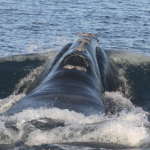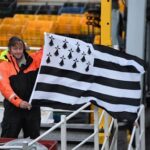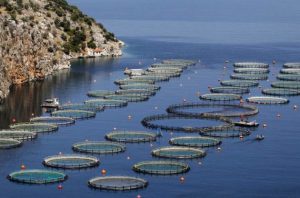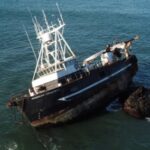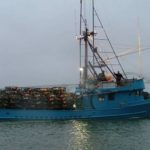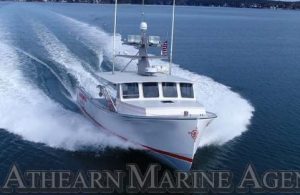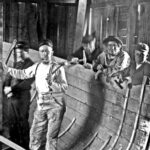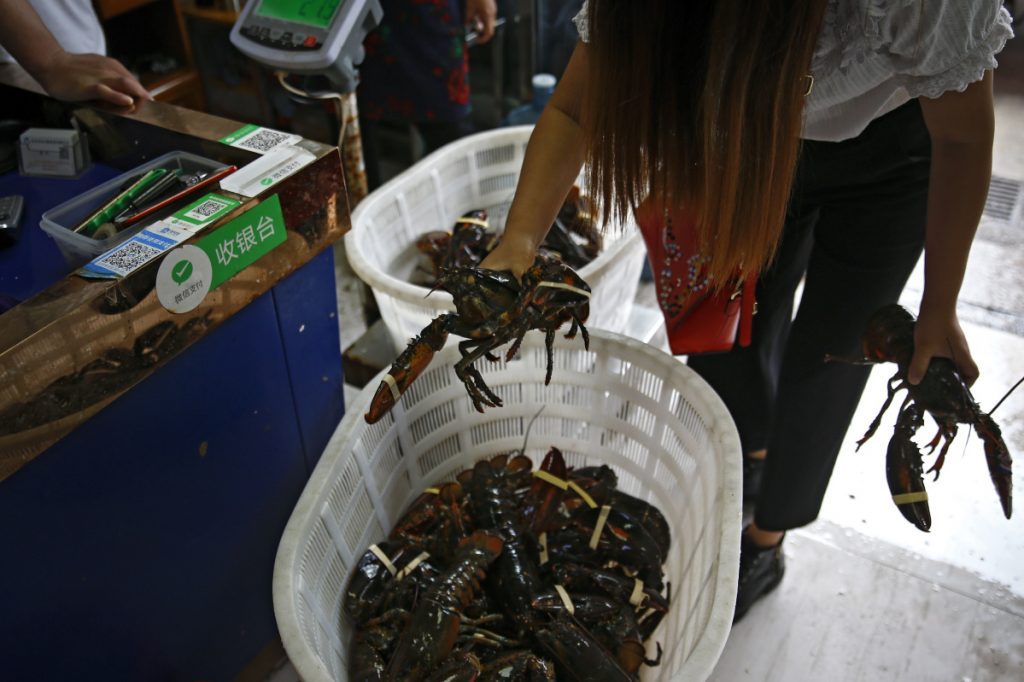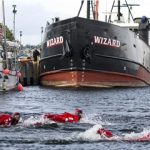Daily Archives: December 26, 2017
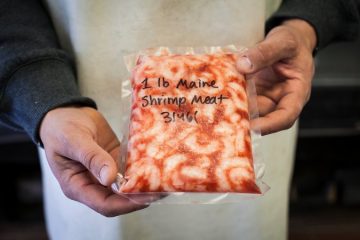
It’s Maine Shrimp Season, Without the Shrimp
Sitting between Glen Libby’s desk at Port Clyde Fresh Catch and the armchair where his brother’s old dog, Red, likes to nap are two boxes full of “The Original Maine Shrimp Cookbook.” This slim spiral-bound volume includes contributions from various members of the brothers’ immediate family, whose shrimping history dates back nearly four decades in this coastal town about two hours northeast of Portland. Mr. Libby loves the small, delicate Northern shrimp, known fondly here as Maine shrimp, and so do customers at his processing and distribution plant. Photo’s, click here to read the story 22:12
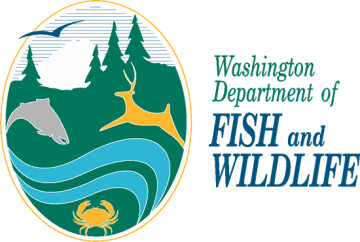
Commercial crab fishing to open Jan. 15 on the Washington coast
Washington’s commercial Dungeness crab fishery will open in coastal waters Jan. 15 after a six-week delay, state shellfish managers announced today. Fishery managers for the Washington Department of Fish and Wildlife (WDFW) approved the opening in coordination with fishery managers from Oregon and California. click here to read the notice 19:37 
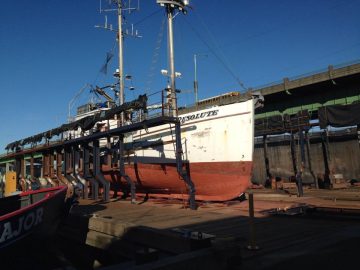
Fishing Vessel Owners Marine Ways incorporates on March 28, 1919.
On March 28, 1919, Fishing Vessel Owners Marine Ways is incorporated. A group of halibut-schooner owners, who are also members of the Fishing Vessel Owners Association, form the new company because they are frustrated by a lack of shipyard capacity in Seattle. Their shipyard will build halibut schooners and dories and will repair, retrofit, and maintain all types of vessels. The yard is located at the Port of Seattle’s Fishermen’s Terminal, the homeport for the Seattle-based North Pacific and West Coast fishing fleets, which opened five years earlier. It will be a vital part of Fishermen’s Terminal and the maritime industry in Seattle over the next century. Photo’s, click here to read the story 19:08
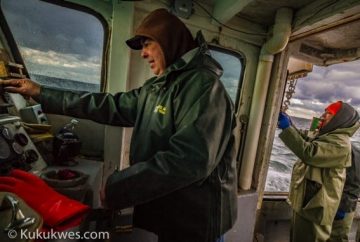
Sipekne’katik band councillor’s lobster pound destroyed in fire
A Sipekne’katik band councillor says a lobster pound he owns in southwestern Nova Scotia was destroyed by fire in the early hours on Christmas Day. Alex McDonald said he was contacted by the RCMP about the fire at his lobster pound located in the tiny community of Saint Bernard near Weymouth, N.S. According to McDonald, the lobster pound was completely destroyed in the fire. click here to read the story 17:12
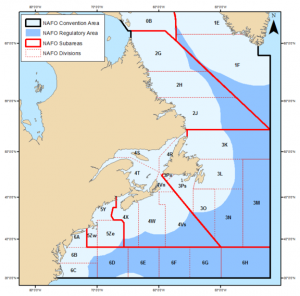
NOAA Seeking U.S. Commissioner to the Northwest Atlantic Fisheries Organization
NOAA Fisheries is seeking a U.S. citizen to serve a four-year term as a Commissioner representing the commercial fishing industry to the Northwest Atlantic Fisheries Organization (NAFO). NAFO is a regional fisheries management organization with 12 Contracting Parties that coordinates scientific study and cooperative management of the fisheries resources of the Northwest Atlantic Ocean, excluding salmon, tunas/marlins, whales, and sedentary species (e.g., shellfish). click here to read the press release 16:26
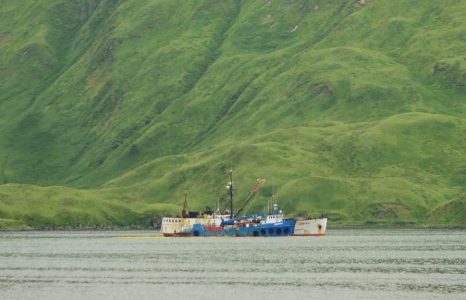
Come 2018, The State Plans To Dispose Of The F/V Akutan
After months sitting abandoned in Unalaska, the state announced Friday its intention to dispose of the fishing vessel Akutan. The processor was abandoned in Unalaska’s Captains Bay in September following a disastrous fishing season in Bristol Bay where the ship’s owner went broke, the crew went unpaid, and it’s 158,000 pound haul of salmon was declared unfit for human consumption. The state is looking for buyers interested in the vessel. If there are two or more prospective buyers, they will conduct a public auction, or the Akutan will be donated for scrap or destroyed. click here to read the story 15:40
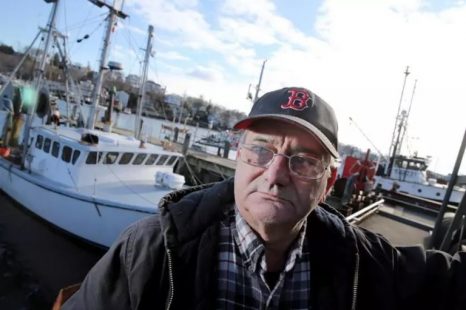
PFD’s: Fishing is a deadly business, but many fishermen won’t wear life preservers
One rogue wave or false step, an ankle caught in a line, is all it takes to cast a fisherman overboard. But those risks have never been enough to convince Rick Beal that it’s worth wearing a life preserver. Even though he has never learned how to swim. Commercial fishing ranks among the most dangerous professions, but fishermen — fiercely independent and resistant to regulations — have long shunned life preservers, often dismissing the flotation devices as inconvenient and constraining. click here to read the story 14:46 
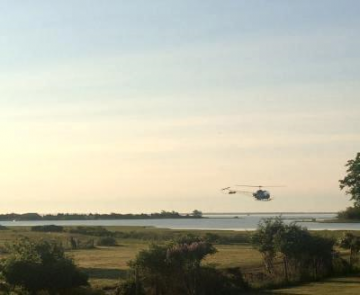
Long Island: Controversial Larvicide Remains in Mosquito Control Plan
The Suffolk County Legislature approved a 2018 vector control plan on Tuesday that includes use of methoprene, a mosquito larvicide, but also acknowledges a pilot program launched this year at Accabonac Harbor that is intended to reduce and possibly eliminate the pesticide’s use. The Legislature passed the 2018 plan by a 17-to-1 vote, a disappointment to activists who insist that methoprene is harmful to nontarget species including lobsters and crabs. click here to read the story 11:07
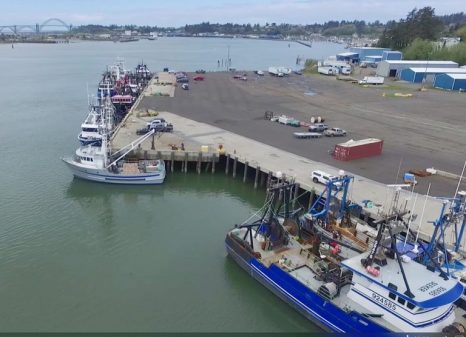
Port of Newport evaluation – some good, some not so much
An evaluation audit of the Port of Newport brought up a number of issues that are common knowledge – the main one being it’s all about the Newport International Terminal (NIT) which has been, for a number of years, in various stages of partial completion. The auditor told the Port Commission this month that the port’s income is rather thin because they have haven’t finished the terminal. Money pledged from the federal government wasn’t spent in time because the port didn’t have an operator for the facility. click here to read the story 09:50
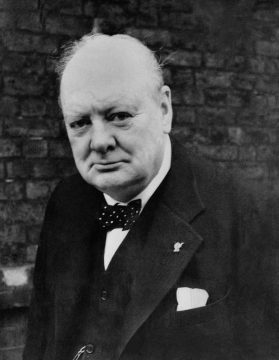
“We shall fight on the beaches” – Michael Gerson: ‘Darkest Hour’ proves that history can hinge on a single leader
But the central conceit of the film — that a deflated, defeated Churchill required bucking up by average Brits — is a fiction. Very nearly the opposite was true. The policy of appeasement was broadly popular in Britain during the early to mid-1930s. In 1938, a majority supported Neville Chamberlain’s deal at Munich (which ceded much of Czechoslovakia to Nazi Germany in return for … nothing). It is more accurate to say that Churchill summoned British courage and defiance by his intense idealization of British character. He saw heroic traits in his countrymen that even they, for a time, could not see. click here to read the story 09:13
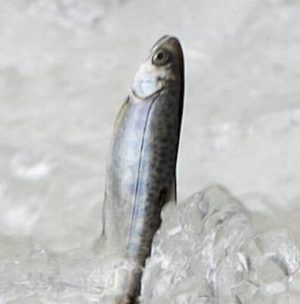
Why California’s most productive salmon hatchery is millions of fish short
California’s most productive salmon hatchery has 6 million fewer fish this year, another sign the state’s drought woes linger despite last winter’s record rainfall. The federal Coleman National Fish Hatchery tries to produce about 12 million fall-run Chinook salmon for release each spring into Battle Creek, a Sacramento River tributary south of Redding. This spring, the Coleman hatchery will only have half as many young salmon to release. click here to read the story08:16

































